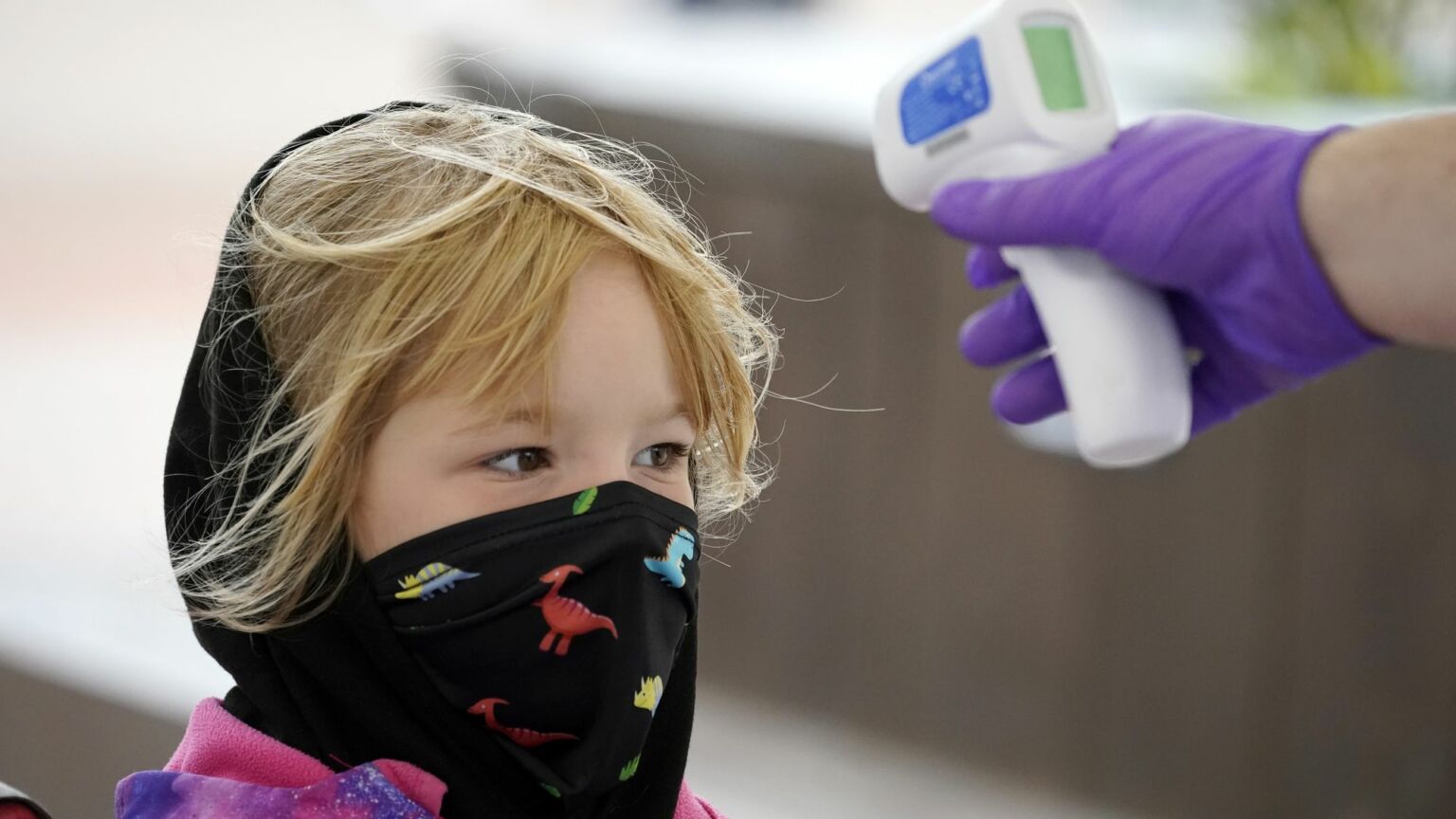Children are still paying the price for lockdowns
The harms to young people’s health can no longer be ignored.

Want to read spiked ad-free? Become a spiked supporter.
It was a sunny spring afternoon when I saw them, streaming out of the school down the road from my house. Children and teenagers, all walking home wearing masks outside.
This was April last year. We were already four months into a national vaccine rollout. The masks seemed so unnecessary. I said at the time that we were really harming our kids, that we were making them afraid. ‘No’, came the replies. ‘Kids can get Covid’, I was told, ‘and they can spread it, too, to vulnerable people’.
What we seemed to forget during the pandemic was that children themselves are vulnerable, too. They are neither fully developed, nor able to take responsibility for themselves. They might have been the demographic group at least risk from Covid. But their developing minds and bodies are more at risk than adults’ minds and bodies from just about everything else.
And now there is increasing evidence that in our efforts to protect adults from Covid, we have put children at risk of long-term harm, both physically and mentally.
Take, for example, the current outbreak of hepatitis, which has affected more than 1,000 children worldwide. Last week, two separate studies by researchers based in London and Glasgow have attributed this rise in serious liver problems among children to two common viruses. These have surged, the studies suggest, because a lot of children have failed to acquire early immunity to many viruses because they were locked down during the pandemic. For some the consequences have been severe. In the UK alone, 12 children have required liver transplants and will be on immunosuppressant medication for the rest of their lives.
Then there are the vaccinations that children have missed out on due to our response to Covid. Research shows that the pandemic has driven the largest sustained decline in vaccination take-up for 30 years. Twenty-five million children around the world are estimated to have missed out on routine immunisations in the past year. In the UK, for instance, school closures led to almost three in 10 14-year-olds missing out on their polio, tetanus and diphtheria boosters in 2021. The British Medical Journal reported back in February that 15 per cent of UK five-year-olds have not had two doses of the MMR. It attributes this to a combination of falling trust in vaccination and the pandemic-induced disruption to health services.
Then there is the damage that may have been done to children’s mental health during the pandemic. The Nuffield Trust published a report in February, which drew attention to the recent ‘surge in demand for mental-health care in children’. The report’s authors noted that ‘vulnerable children, such as those with special educational needs and / or disabilities, have been particularly affected’.
All of these problems were entirely predictable. It is obvious that children will struggle to receive medical care if GP surgeries are effectively shut. It is obvious that if you close schools and halt vaccination programmes, many children will go without a jab. And it is obvious that if children are locked down at home, they will fail to acquire immunity to many everyday viruses and they will suffer psychologically from the isolation.
How did we allow this to happen? People were obviously scared – Covid can be a horrible illness, especially for certain at-risk groups. Yet the need to protect a relatively small number of elderly and vulnerable people from Covid morphed into the desire to protect everyone from Covid. And the lockdown measures that followed have had terrible consequences, especially for the young.
The government and the media’s often fear-mongering approach to Covid has not helped, of course. We were encouraged to organise our entire society around the threat posed by Covid. Schools were shut with barely a thought. And the physical and mental needs of children were ignored.
Most of us did our best during the pandemic. But we still need to accept that we, as adults, let children down. We put protecting ourselves from Covid over the interests and needs of the youngest in society. However much we may try to justify that to ourselves, it does not alter the outcome for the children whose lives have been severely affected.
We cannot allow it to happen again.
Sarah Linney is a journalist. Follow her on Twitter: @thedailysarah.
Picture by Getty.
Who funds spiked? You do
We are funded by you. And in this era of cancel culture and advertiser boycotts, we rely on your donations more than ever. Seventy per cent of our revenue comes from our readers’ donations – the vast majority giving just £5 per month. If you make a regular donation – of £5 a month or £50 a year – you can become a and enjoy:
–Ad-free reading
–Exclusive events
–Access to our comments section
It’s the best way to keep spiked going – and growing. Thank you!








Comments
Want to join the conversation?
Only spiked supporters and patrons, who donate regularly to us, can comment on our articles.